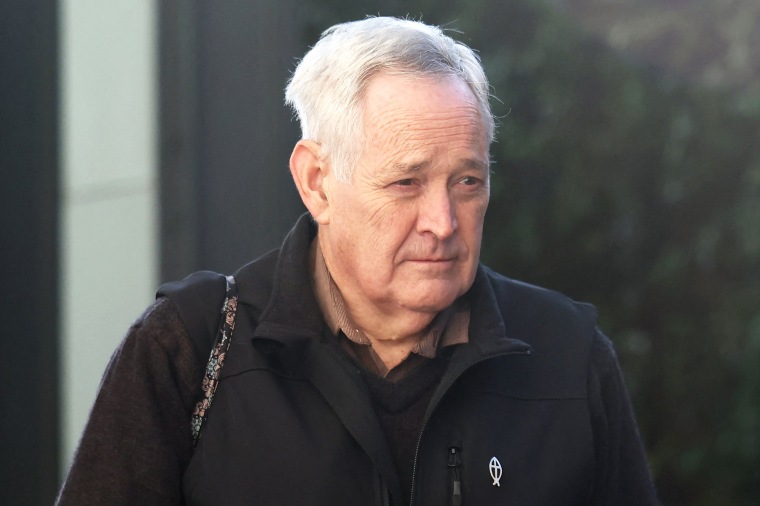A sequestered jury in Australia began deliberations Monday in the triple murder trial of Erin Patterson, accused of killing her estranged husband’s relatives by deliberately serving them poisonous mushrooms for lunch.
Three of Patterson’s four lunch guests — her parents-in-law Don and Gail Patterson, and Gail’s sister Heather Wilkinson — died in the hospital after the 2023 meal at her home in Leongatha, at which she served individual beef Wellington pastries containing death cap mushrooms.
She is accused of attempting to murder the fourth, Heather’s husband Ian Wilkinson, who was gravely ill but survived.

During the nine-week Supreme Court trial in the state of Victoria, Patterson gave evidence in her own defense. The 50-year-old mother of two faces life in prison if convicted.
Jury must decide if mushroom cook meant to kill
It isn’t disputed that Patterson served her guests the toxic mushrooms or that the meal killed them. But the jury must decide whether she meant for them to die.
Prosecutors in the case, which has gripped Australia for two years, said the accused woman researched, foraged and served the mushrooms deliberately and lied to investigators to cover her tracks. Their case against Patterson included that she disposed of a food dehydrator after the fatal meal and reset her phone multiple times.
The prosecution said she lied about having a dire medical diagnosis to ensure her guests attended the lunch, cooked individual pastries to avoid poisoning herself, and faked symptoms to make it look as though she fell ill, too.
But Patterson’s lawyers said the poisoning was a terrible accident caused by a pantry mix-up of store-bought and wild mushrooms, which she didn’t know were death caps. The defense case was that Patterson wasn’t as ill as the other diners because she induced vomiting after the meal due to an eating disorder.
The accused lied to the police that she had never foraged mushrooms or owned a dehydrator out of panic, her lawyers said. Patterson denied telling her lunch guests she had a confirmed diagnosis of cancer.
Prosecutors offered no motive
Justice Christopher Beale spent four days summarizing the case to jurors before their deliberations began, urging them not to be swayed by bias or prejudice, or by sympathy for the families of those who died. Patterson’s lies, some of which she admitted during her evidence, could be used to assess her credibility but didn’t mean she was guilty of murder, Justice Beale said.
Prosecutors didn’t offer a motive for the alleged killings and weren’t required to. But they suggested a deteriorating relationship between the accused and her estranged husband, Simon Patterson, as well as her exasperation with her former in-laws, which she expressed to friends on social media months before the deaths.
The defense said Erin Patterson had a positive and loving relationship with her lunch guests, who included her children’s only living grandparents, and that she had no reason to kill them. Justice Beale highlighted in his summary of the case the fleeting and minor nature of the past disputes.
Simon Patterson was invited to the fatal lunch but didn’t go.
Jurors will remain sequestered
A 14-member jury heard the case, but 12 were selected by ballot Monday to decide the verdict. The jury will remain sequestered, meaning they will stay together in court-appointed accommodation until they reach a unanimous decision.
Late Monday afternoon, court staff told reporters that jurors had finished deliberations for the day and would return to consider the case Tuesday. The jury is not permitted to return a verdict outside of the court’s sitting hours and members are barred from discussing the case outside the jury room — even with each other.
Sequestration is rare in Australia and reflects public and media fervor about the case, with several news outlets publishing live blogs that covered every moment of the trial for its more than two-month run. The lengthy fixture in the town of Morwell, Victoria, drew lines of people eager to watch proceedings each day.